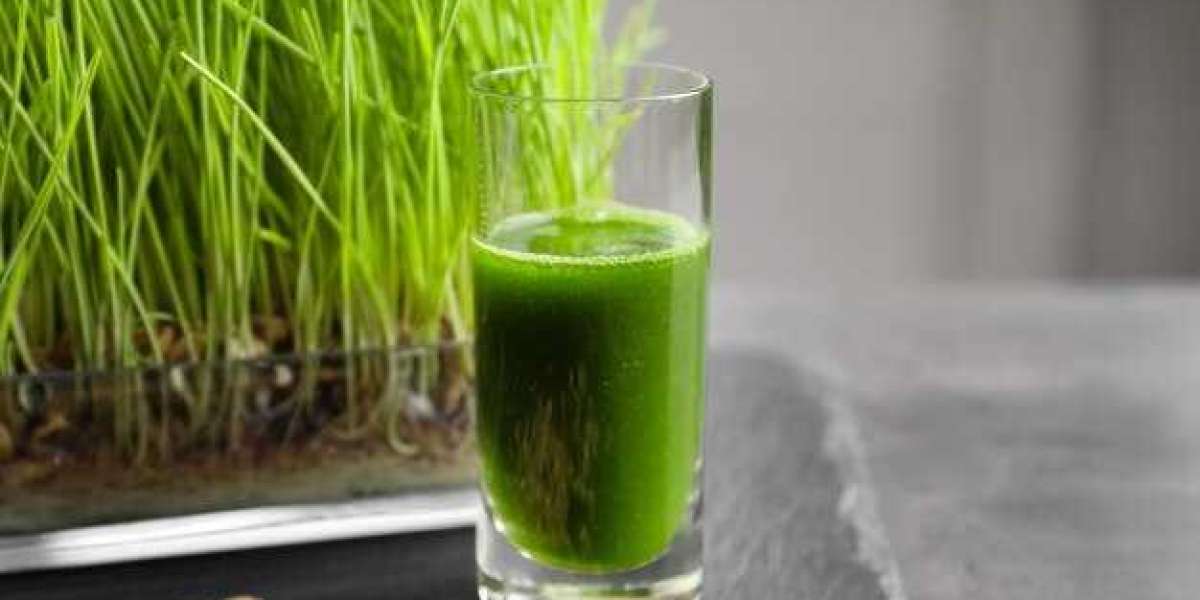Cancer, a complex and challenging disease, has led many individuals to explore complementary and alternative therapies in their quest for better health and well-being. One such option that has gained attention in recent years is wheatgrass juice. Known for its nutrient-rich profile and potential health benefits, wheatgrass juice has piqued the interest of cancer patients seeking additional support during their treatment journey. In this guest blog, we'll explore the potential benefits, safety considerations, and scientific insights surrounding wheatgrass juice for cancer patients.
Understanding Wheatgrass
Wheatgrass is the young, tender shoots of the common wheat plant, Triticum aestivum. It is harvested before it reaches the grain-producing stage, typically around 7-10 days after sprouting. Wheatgrass is often juiced and consumed as a concentrated liquid, touted for its high content of vitamins, minerals, antioxidants, and chlorophyll.
Potential Benefits of Wheatgrass Juice for Cancer Patients
Nutrient Density: Wheatgrass juice is a nutrient powerhouse, containing vitamins (A, C, E, and several B vitamins), minerals (iron, calcium, magnesium), and amino acids. Cancer patients may benefit from these essential nutrients, as cancer and its treatments can sometimes lead to nutrient deficiencies.
Antioxidant Properties: Antioxidants in wheatgrass, such as vitamin C and chlorophyll, can help combat oxidative stress and free radicals, which play a role in cancer development and progression.
Immune Support: A robust immune system is crucial for cancer patients. Some research suggests that wheatgrass may support immune function, potentially aiding in the body's defense against cancer cells.
Detoxification: Wheatgrass is often associated with detoxifying the body. While the scientific evidence on its detoxifying effects is limited, some cancer patients may find this aspect appealing.
Safety Considerations
Interaction with Medications: Cancer patients should exercise caution when considering wheatgrass juice, as it may interact with certain medications or therapies. It's essential to consult with a healthcare provider before adding it to your regimen.
Allergies and Side Effects: Some individuals may be allergic to wheat or grasses, so it's crucial to monitor for adverse reactions, such as itching, hives, or gastrointestinal discomfort. Start with a small amount and observe how your body responds.
Quality and Contamination: Ensure that the wheatgrass juice you consume is of high quality, free from contaminants, and sourced from reputable suppliers.
Scientific Insights
While wheatgrass juice is celebrated for its potential health benefits, it's essential to acknowledge the limited scientific research specifically focused on its role in cancer treatment or prevention. Most studies on wheatgrass have been conducted in laboratory settings or on animals, and their results may not directly translate to human health.
Conclusion
Wheatgrass juice can be a part of a holistic approach to health and wellness for cancer patients, but it should not replace conventional cancer treatments or medical advice. Its potential benefits, such as providing essential nutrients and antioxidants, may support overall well-being during cancer treatment. However, individual responses to wheatgrass may vary, and some may find it beneficial, while others may not.
The key to incorporating wheatgrass juice or any complementary therapy into a cancer care plan is open communication with healthcare providers. They can provide personalized guidance, consider potential interactions with treatments, and ensure that any therapies chosen align with the patient's overall health and treatment goals.






